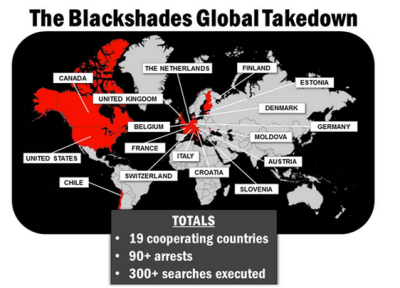“In March 2010, a 31 year old man from California was arrested for spying on a young woman through her webcam” “Since then, there have been thousands of documented cases of what is called webcam hacking”.
This is a short film created entirely through the use of a webcam, to help demonstrate the dangers of a owning one, and how easily anyone can hack into someone’s computer to spy on people virtually, which ultimately affects them in their physical reality by disrupting the privacy of their space, both online and offline. This removes the ideology that personal computers are a safe private space for their users, rather, there is a growing paranoia that one’s own devices are being used to someone else’s advantage without their knowledge. In this case, to be spied or surveilled on by webcam hackers which raises the question of weather someone can know if they are truly safe simply by being connected to the internet and owning a webcam. This article on BBC News from June 2013 also investigates the accessibility of other people’s computers, which is remarkably easy to do with hundreds of tutorials online: Webcams taken over by hackers, charity warns
CNBC explores the tool Blackshades RAT, which allows people to access and control anyone’s computer, with little expertise and on very low costs: Inside Blackshades: Hackers are watching you on infected webcams
Most people who own computers, especially from Apple, have a camera already installed into them, or have purchased a webcam to have more visual conversations with people on private networks such as good old MSN messenger, and Skype. Although these social networks claim to give us control over our security through the settings of our personal accounts, it is very possible if someone is not attentive to their computers or who don’t know any better, especially children, that their webcams are being accessed by a hacker. This can lead to more dangerous cases that involve the hacker and the computer’s owner having a physical interaction, outside of this virtual space.
“John, 16, who lives near London, estimates he has hacked 100 computers and viewed webcams on almost half of them” He says: “I know it is illegal. I wasn’t really looking for anything on their webcams, just their reactions. I’d open up random sites – shock sites – they’d see a scary picture or someone screaming, and you’d see they were scared. There are creepy people who post pictures of female slaves. I’m not really into that.”
One way of knowing whether your webcam is being accessed is if its light turns on, although if you have a microphone connected to your computer as well, there is no way of knowing who can tune in and listen on private conversations. BBC recommends people cover their webcams with a piece of black tape when they are not being used, and have a good anti-virus installed keeping their computer updated, making it more difficult for hackers to take control over their devices. The devious ways in which hackers can retrieve information from you through the mask of the internet, may fool many strangers they are speaking to in chat rooms as well; older sexual predators claiming to be kids is a form of virtual embodiment, as is performing as invisible and watching someone sleep while their camera is on.
By participating in today’s modern virtual spaces, such as Skype for instance, a private social network, and having a webcam which most people do, it shouldn’t be as easy as it is for one’s personal computer to be used against them by an outsider. More effective ways of knowing someone’s private space is no longer private should exist, perhaps by making more reliable and effective anti-malware software free. Otherwise anyone could be under unauthorized surveillance when they are most vulnerable and in their supposedly safe environments. Skype’s security page explains how to avoid hackers, by having a difficult password, keeping Skype up-to-date, avoiding phishing (when a third party attempts to trick you into providing information that they shouldn’t have, such as someone claiming to be a Skype employee asking for private information) and more which you can view on their security page: Skype Security
Question: Would these tools used for surveilling people through their webcams be useful for parental monitoring of children, in order for parents to have better control over their children avoiding the dangers of public chat rooms and viruses at such a young age? Due to existing social networks for children such as Club Penguin, a website my younger brother used to be very active on and made friends with people now outside of the penguin network, is meant for kids and supposedly created through their parent’s email addresses. Typically anyone can partake in this experience and would only appear as a friendly penguin to a young kid, therefore should parents have better surveillance over their children going on social websites like these? Here is a glimpse of what Club Penguin is:
Sources:
Farman, Jason. (2012). Mobile Interface Theory Ch. 1 “Embodiment and the Mobile Interface” (16-34) London: Routledge.
“Hackers Are Watching You on Infected Webcams.” CNBC. 24 May 2014. Web. 31 Mar. 2015.
“Webcams Taken over by Hackers, Charity Warns.” BBC News. Web. 31 Mar. 2015.
“Protecting Your Online Safety, Security and Privacy.” Skype Security. Web. 31 Mar. 2015.
